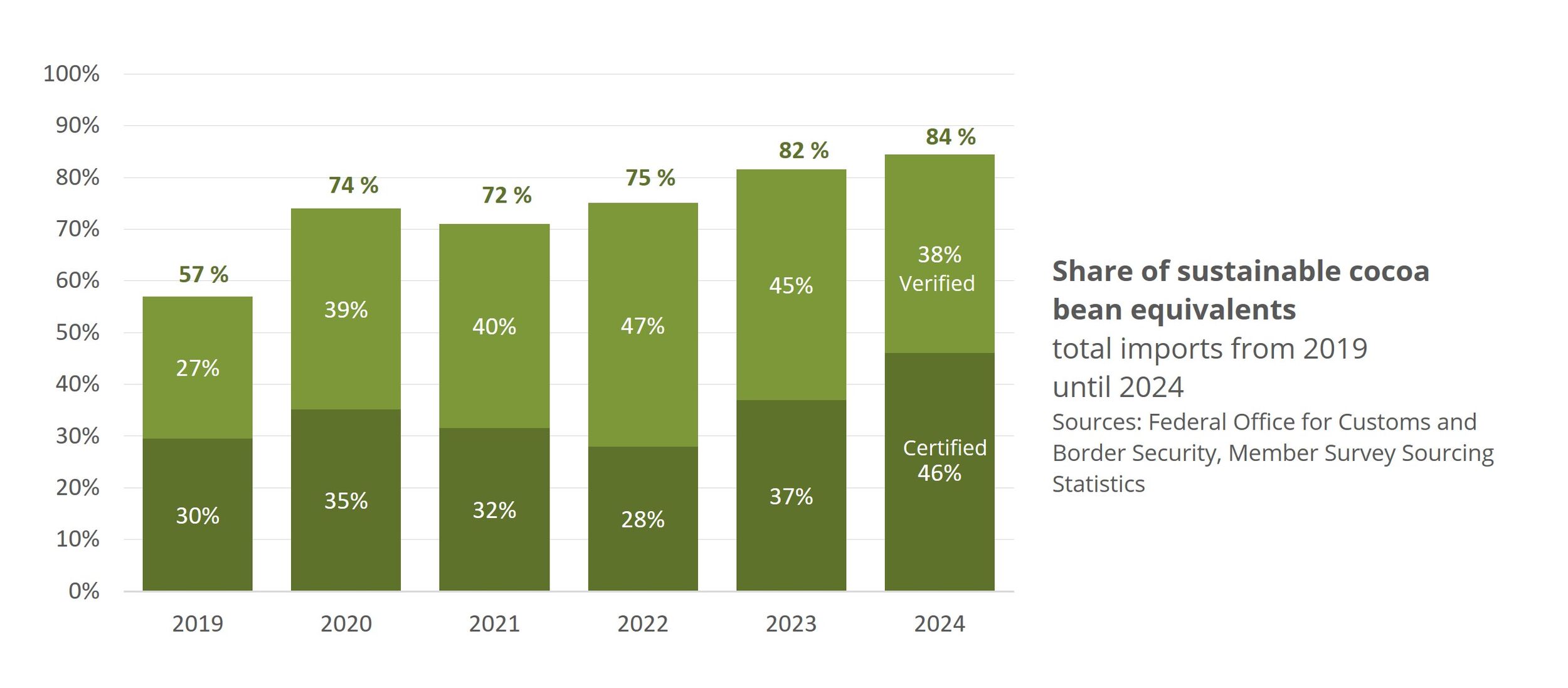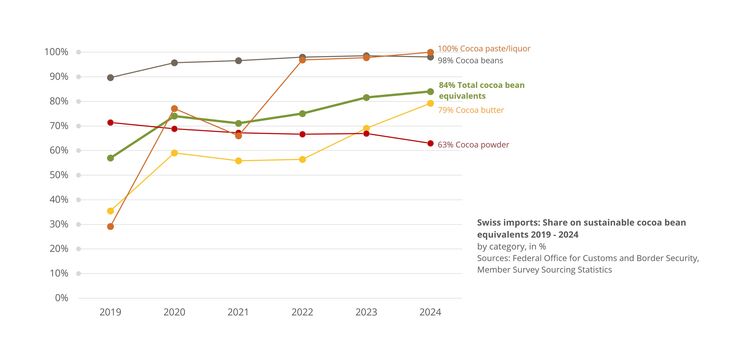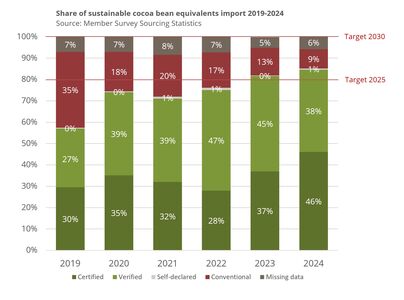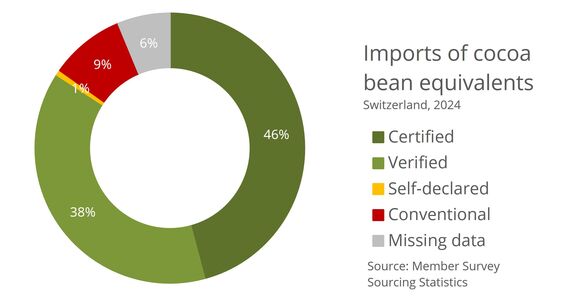A common monitoring framework for measuring progress
To monitor progress and challenges in achieving the Cocoa Platform’s goals and to measure results, a common Monitoring, Evaluation and Learning (MEL) framework was developed.
The members of the Cocoa Platform have committed to the goal of ensuring that all cocoa imported into Switzerland comes from sustainable production by 2030 and aim to make a measurable contribution to the Sustainable Development Goals (SDGs) of the United Nations (UN). The common MEL framework was developed in collaboration with the Research Institute for Organic Agriculture (FiBL) in a participatory process involving representatives of all member sectors. It was adopted by the members at the first General Assembly in 2019.
The MEL Framework builds on the principles for sustainable cocoa and takes into account existing international frameworks. It has a modular structure consisting of basic output indicators, advanced outcome indicators and sector-wide impact indicators. Farm and household characteristics form the basis of all assessments, and the framework can be expanded with a set of optional indicators.
The progress of the Cocoa Platform is monitored at four levels:
1. Monitoring the share of sustainable cocoa imported into Switzerland
In 2024, 84 % of all cocoa bean equivalents imported into Switzerland came from sustainable production. This is an increase of 2 % compared to the 82 % of the year 2023. The interim target of 80% sustainable imports by 2025 was therefore already achieved in 2023. The next goal is to reach a share of 100% by 2030. To accomplish this, further efforts must be made, particularly concerning the import of cocoa butter.
Broken down by cocoa products, 98 % of cocoa beans came from sustainable production in 2024. The share of cocoa butter increased to 79% in 2024. Despite this good result, it remains a key challenge to increase this share in order to achieve the Cocoa Platform's medium and long-term sourcing targets.
Cocoa sourced from sustainable production is understood as cocoa equivalents which are either produced and certified according to internationally recognized sustainability standards or produced according to the Principles for Sustainable Cocoa and credibly verified by an independent third party. Learn more
2. Monitoring and evaluation of the projects
The activities of the members of the Cocoa Platform within the framework of the projects co-financed by the Swiss State Secretariat for Economic Affairs (SECO) are recorded annually. The MEL framework developed specifically for the Cocoa Platform serves as the basis for recording the progress and impact of our projects.
From 2018 to 2022, SWISSCO members have engaged in a number of public-private partnerships, co-financed by the SECO to pilot innovative approaches in the cocoa value chain. With a total investment of over CHF 26 million, 15 innovative value chain projects in eight countries have generated insights into approaches to tackle the various socio-economic and environmental sustainability challenges in the cocoa sector and beyond. A report, summarising the learnings and including case studies for each of the projects can be found here.
In 2023, a new SECO co-financed project cycle was launched, encompassing landscape projects, innovative value chain projects and peer learning and collaboration projects and initiatives. These projects will continuously be monitored through the platform’s MEL framework.
3. Measuring the achievement of the Roadmap 2030 targets
The goals of the Cocoa Platform are aligned with the UN Sustainable Development Goals (SDGs) under the 2030 Agenda and are set out in the Roadmap 2030, which was adopted by the General Assembly in September 2021 and fully revised in 2025. The Roadmap defines 6 ambitions: (1) Living income, (2) Human Rights and Working Conditions, (3) No Deforestation – Restoration of Forest Ecosystems, (4) Promotion of Agroforestry, (5) Climate Action as well as (6) Traceability and Transparency.
To measure the progress and challenges of the Cocoa Platform's members towards achieving these goals, three member surveys will have been conducted by 2030 and their key findings is published in aggregated form in a series of three reports (2022, 2025 and 2030).
4. Harmonisation of monitoring with other initiatives
The Cocoa Platform works towards harmonising its monitoring with cocoa producer countries within the framework of the International Cocoa Organization (ICCO) and with other globally active member initiatives in the cocoa sector (e.g. the World Cocoa Foundation WCF or the European Initiatives on Sustainable Cocoa ISCOs). The Cocoa Platform is in regular contact with representatives of the relevant initiatives to promote the standardisation of indicators, metrics and definitions as well as the timeframe of the surveys.
On the one hand, this makes it easier for companies and organisations involved in several initiatives to process the data. On the other hand, it enables the quantification of the collected data and the measurability of the impact in the cultivation regions. Through cross-country and cross-organisational monitoring systems, important insights can be gained that reflect the current situation in the cocoa growing regions. In addition, the Cocoa Platform plans and carries out topic-specific and sector-wide studies, so-called impact assessments, together with national and international initiatives.




